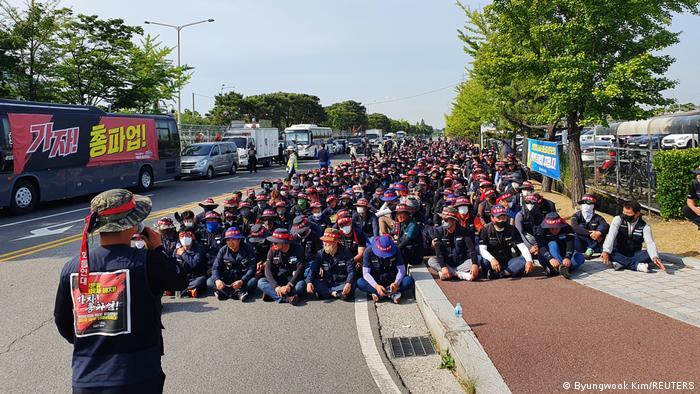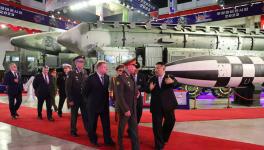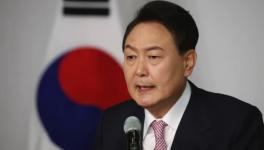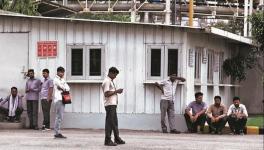Thousands of South Korean Truckers Broaden Strike Action

Members of the Cargo Truckers Solidarity union attend a protest in front of Hyundai's factory in Ulsan, South Korea.
A strike by thousands of unionized cargo truckers in South Korea has entered its fourth day amid rising fuel prices and demands for basic wage guarantees.
The strike has led to disruption in production for a wide range of companies, impeding activity at ports and posing new challenges to an already strained global supply chain.
On Friday, the truckers broadened their demonstration at the country's major ports, threatening to curtail shipments of raw materials for semiconductors and petrochemical products.
South Korea is one of the world's biggest suppliers of semiconductors, smartphones, cars, batteries and electronics goods.
The strike comes amid strained global supply chains owing to the COVID-19 pandemic and Russia's invasion of Ukraine.
What are the demands?
Close to 7,200 members or approximately 30% of the Cargo Truckers Solidarity union are on strike, the nation's transport ministry said.
Truckers have taken action at steelmaking company POSCO and automakers Hyundai and Kia.
On Thursday, production was halved at Hyundai's biggest factory in the industrial center of Ulsan because of the protest.
"There are some disruptions to our production due to the truckers strike, and we hope production would be normalized as soon as possible," news agency Reuters quoted a Hyundai spokesperson as saying.
The truckers — who are considered self-employed contractors in South Korea — are calling for pay increases and a promise to extend an emergency measure guaranteeing freight rates, in other words to guarantee certain prices for their deliveries.
The measure, introduced during the coronavirus pandemic, is scheduled to expire in December.
First challenge for newly elected President
Meanwhile, new conservative President Yoon Suk-yeol — who inherited serious economic challenges when coming to power last month — has said that disputes between labor and management should be resolved without intervention from the government.
"Only when the government sticks to the law and principles and remains neutral, do I believe labor and management will be able to build the capacity to freely resolve their issues on their own," South Korean news agency Yonhap quoted him as saying on Friday.
Yoon rejected criticism that his "hostile" policy toward workers was stoking the tensions.
"Don't you think someone who is hostile toward laborers would not be able to become a politician?" he said.
dvv/msh (Reuters)
Get the latest reports & analysis with people's perspective on Protests, movements & deep analytical videos, discussions of the current affairs in your Telegram app. Subscribe to NewsClick's Telegram channel & get Real-Time updates on stories, as they get published on our website.


















